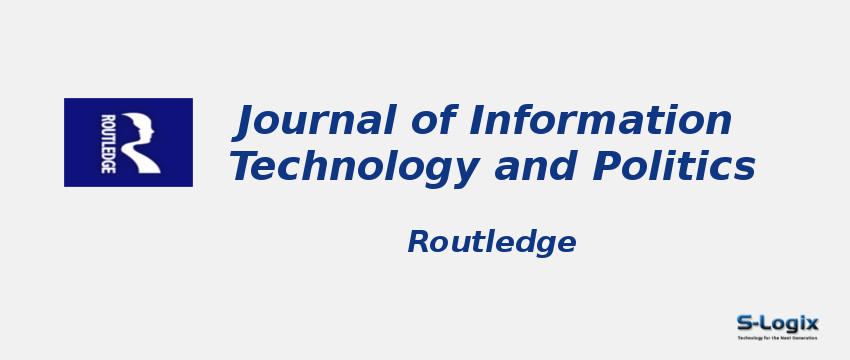Journal Home: Journal Homepage
Editor-in-Chief: Lauren Copeland
Print ISSN: 1933-1681
Electronic ISSN: 1933-169X
Abstracting and Indexing: SCOPUS, Science Citation Index Expanded
Imapct Factor 2024: 2.4
Subject Area and Category: Computer Science , Computer Science (miscellaneous),Social Sciences ,Public Administration,Sociology and Political Science
Publication Frequency:
H Index: 54
Q1: Computer Science (miscellaneous)
Q2:
Q3:
Q4:
Cite Score: 7.0
SNIP: 1.862
Journal Rank(SJR): 1.300
Latest Articles: Latest Articles in Journal of Information Technology and Politics
Guidelines for Authors: Journal of Information Technology and Politics Author Guidelines
Paper Submissions: Paper Submissions in Journal of Information Technology and Politics
Publisher: Taylor & Francis
Country: United States
